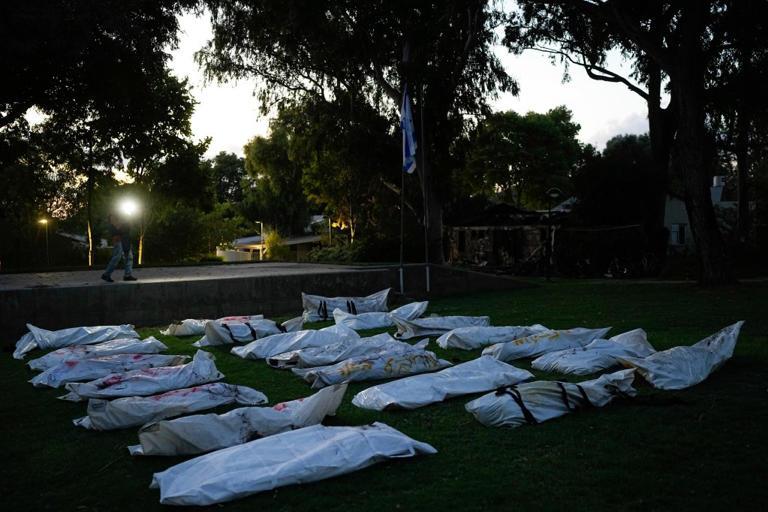
Hamas intentionally targeted families to terrorize communities in Oct. 7 attacks
The Civil Commission on October 7th Crimes by Hamas against Women and Children released a groundbreaking report this week. Titled “Kinocide: The Weaponization of Families,” its key findings demonstrate the systematic and widespread targeting of families “aimed at terrorizing and breaking the spirit of kins and entire communities.”
The report, prepared by Dr. Cochav Elkayam-Levy, Dr. Michal Gilad and Dr. Ilya Rudyak from the Civil Commission, introduces the term “kinocide,” which is defined as “the weaponization of families and the exploitation of familial bonds as a distinct form of violence.”
To compile the report, the commission reviewed a substantial volume of materials and evidence including photographs, video footage, audio recordings, satellite images, text messages exchanged as the attack unfolded, recorded testimonies, media coverage, investigative reports and public databases.
A profoundly harrowing read, it details Hamas atrocities committed against families and communities on Oct. 7, 2023. They included acts such as killing and severe injury in the presence of other family members; eliminating entire family units; abduction of families, including children; using digital and social media to broadcast abuses directly to the victims’ families and the general public, including by commandeering victims’ social media accounts; intentionally separating family members; and burning and vandalizing family homes.
The “Kinocide” report features contributions from eminent experts such as Irwin Cotler, international chair of the Raoul Wallenberg Centre for Human Rights and former minister for justice in Canada. The report is endorsed by many leaders, prominent individuals and organizations.
Elkayam-Levy, founder of the Civil Commission, told JNS, “The weaponization of families in war is a crime without a name, inflicted on victims without a voice. It represents a devastating form of atrocity that demands urgent recognition and action from the international community. By identifying and documenting the systematic and targeted abuse and destruction of families — a crime we have named kinocide — we aim to give this suffering a name and provide victims with the language to articulate their unique pain, bringing this hidden cruelty into the forefront of international law and human rights discourse.”
The Oct. 7 attacks were not the first time that the crime of kinocide has been evident. Other examples included in the report come from war and conflict in Iraq, Syria, Rwanda, Bosnia and Herzegovina, Myanmar, Sri Lanka, Sierra Leone, Russia and Ukraine, as well as earlier occurrences by Nazi Germany.
According to the report, identifying and naming kinocide is key to protecting families and bringing attention to this historically unrecognized phenomenon. The report’s authors see such recognition as a powerful tool for ensuring justice and accountability.
Masih Alinejad, Iranian-American journalist, author and women’s rights activist, has endorsed the Civil Commission’s report, noting that “The weaponization of families is neither new nor unique to the October 7 attack, but … deliberate targeting of families should be recognized as constituting a new form of international crime.”
Sheryl Sandberg, founder of Lean In and producer of the documentary “Screams before Silence,” has also endorsed the commission’s report: “On October 7, Hamas struck at the heart of the Jewish community: the family unit. Hamas’s atrocities against families were designed to break one of life’s strongest bonds. They tried, but they must never be allowed to succeed. This groundbreaking work by the Civil Commission, led by the incredible Dr. Cochav Elkayam-Levy, and supported by the Raoul Wallenberg Center …, serves as a clarion call to the international community to stand up and take action to protect families across the globe from future acts of violence by classifying kinocide as a crime against humanity.”
The Civil Commission began disseminating the report in late December 2024 and will continue throughout 2025 through various channels, including email distribution, in-person meetings, webinars and conferences.
Source: msn





